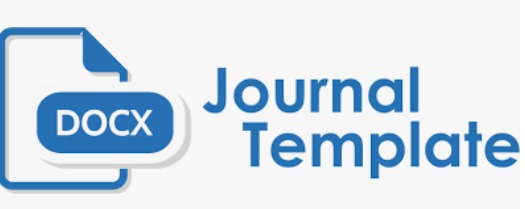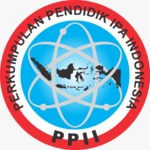Pengaruh Pendekatan Pembelajaran STEM terhadap Keterampilan Abad 21 di Educourse.id
DOI:
https://doi.org/10.29408/kpj.v9i2.30467Keywords:
STEM Learning, 21st-Century Skills, Educourse.idAbstract
Critical thinking skills are highly essential in the learning process, especially considering that critical thinking is one of the key skills being developed in the 21st century. This study aims to describe the influence of the STEM learning approach on 21st-century skills at Educourse.id. The method used is a quantitative method with a pre-experimental one-group pretest-posttest design. The population in this study consists of all Educourse.id course participants located in BSD Tangerang who participated in the STEM-based learning program during 2024, using purposive sampling technique. The results showed that there was a significant difference between the pre-test and post-test scores, with a significance result of 0.000, which is smaller than the alpha value of 0.05. The calculated t-value (-7.708) was less than the critical t-value (-2.35), leading to the decision to reject H0. This means that there is a significant difference between the pre-test and post-test scores.
References
Ali, M. Makhru., Tri Hariyati, Meli Yudestia Pratiwi, and Siti Afifah. 2022. “Metodologi Penelitian Kuantitatif Dan Penerapannya Dalam Penelitian.” Education Journal.2022 2(2):1–6.
Arliana, Beti, Ramtia Darma Putri, and Syska Purnama Sari. 2022. “Peningkatan Self-Disclosure Melalui Bimbingan Kelompok Pada Siswa Kelas X Di SMA Negeri 1 Rambang Niru.” Jurnal Pendidikan Dan Konseling 4(4):1120–23.
Azhar. 2023. “Pendekatan Stem Terhadap Kemampuan Berfikir Kritis Abad 21 Siswa Kelas V Sekolah Dasar.” Jurnal Penelitian Teknologi Informasi Dan Sains 1(3):120–30.
Bornstein, Marc H. 2018. “Science, Technology, Engineering, and Mathematics.” The SAGE Encyclopedia of Lifespan Human Development (September):1–18.
Dinc, Emre. 2019. “Prospective Teachers’ Perceptions of Barriers to Technology Integration in Education.” Contemporary Educational Technology 10(4):381–98.
Graham, Mark A. 2020. “Deconstructing the Bright Future of STEAM and Design Thinking.” Art Education 73(3):6–12.
Karmila, Karmila and Dian Pramana Putra. 2022. “Pengaruh Pembelajaran STEM (Science, Technology, Engineering And Mathematics) Pada Materi Fluida Terhadap Keterampilan Berpikir Kreatif Peserta Didik.” Jurnal Literasi Digital 2(1):11–20.
Mulyani, T. 2019. “Pendekatan Pembelajaran STEM Untuk Menghadapi Revolusi Industry 4.0.” Seminar Nasional Pascasarjana 2019 7(1):455–60.
Muttaqiin, Arief. 2023. “Pendekatan STEM (Science, Technology, Engineering, Mathematics) Pada Pembelajaran IPA Untuk Melatih Keterampilan Abad 21.” Jurnal Pendidikan Mipa 13(1):34–45.
Novianti, Baiq Aryani, I. Wayan Lasmawan, and I. Gusti Putu Suharta. 2023. “Efek STEM Dalam Pembelajaran Sains Terhadap Keterampilan Abad 21: Meta Analisis.” Kappa Journal 7(2):307–12.
Novianti, Baiq Aryani, Putu Kerti Nitiasih, and Putu Nanci Riastini. 2023. “Study Of STEM-Based Learning Against 4C Skills (Critical, Creative, Communication, and Collaboration) In Science.” Jurnal Ilmiah Profesi Pendidikan 8(3):1917–21.
Novitasari, Indah Riezky Pratiwi, and Elisa Mayang Sari. 2023. “Pembelajaran STEM Dalam Meningkatkan Keterampilan 4C Pada Abad 21.” JUPE2: Jurnal Pendidikan & Pengajaran 1(2):217–24.
Safitri, Nurul Annisa. 2022. “The STEAM Approach to Improve 21st Century Skills in Elementary Schools.” Kalam Cendekia: Jurnal Ilmiah Kependidikan 10(2):227.
Sulistyanto, Sulistyanto, Farid Mutohhari, Andi Kurniawan, and Dianna Ratnawati. 2021. “Kebutuhan Kompetensi Di Era Revolusi Industri 4.0: Review Perspektif Pendidikan Vokasional.” Jurnal Taman Vokasi 9(1):25–35.
Wrahatnolo, T. and Munoto. 2018. “21St Centuries Skill Implication on Educational System.” IOP Conference Series: Materials Science and Engineering 296(1).
Zubaidah, Siti. 2019. “Memberdayakan Keterampilan Abad Ke-21.” Seminar Nasional Nasional Pendidikan Biologi 1–19.
Downloads
Published
Issue
Section
License
Copyright (c) 2025 Kappa Journal

This work is licensed under a Creative Commons Attribution-ShareAlike 4.0 International License.
Semua tulisan pada jurnal ini menjadi tanggungjawab penuh penulis. Jurnal Kappa memberikan akses terbuka terhadap siapapun agar informasi dan temuan pada artikel tersebut bermanfaat bagi semua orang. Jurnal Kappa dapat diakses dan diunduh secara gratis, tanpa dipungut biaya, sesuai dengan lisensi creative commons yang digunakan







